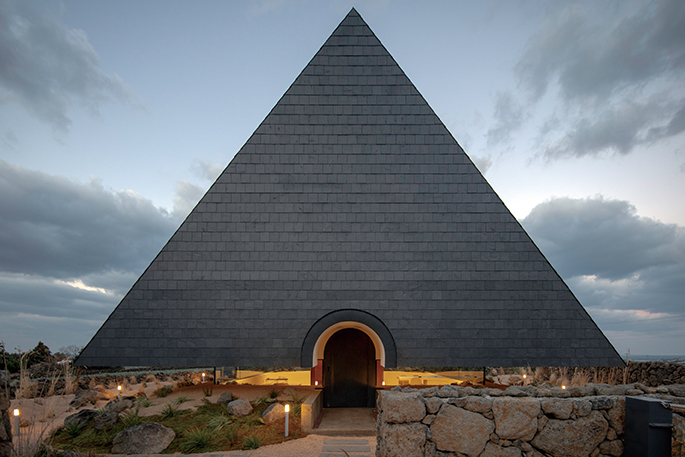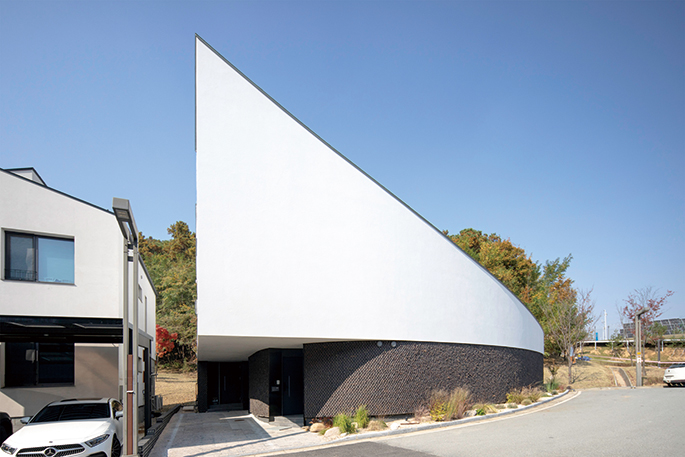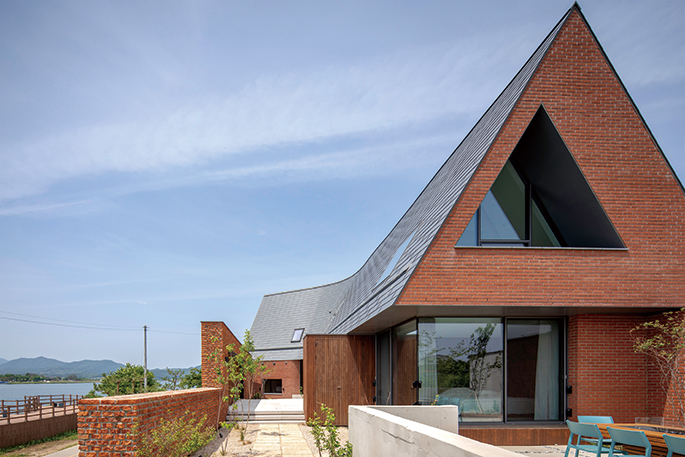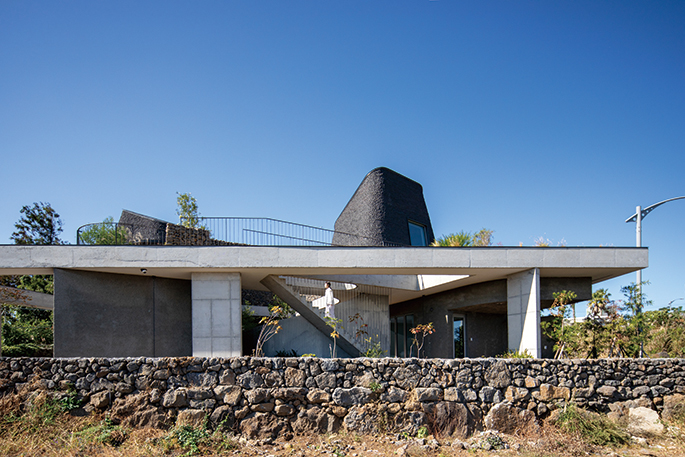SPACE February 2024 (No. 675)
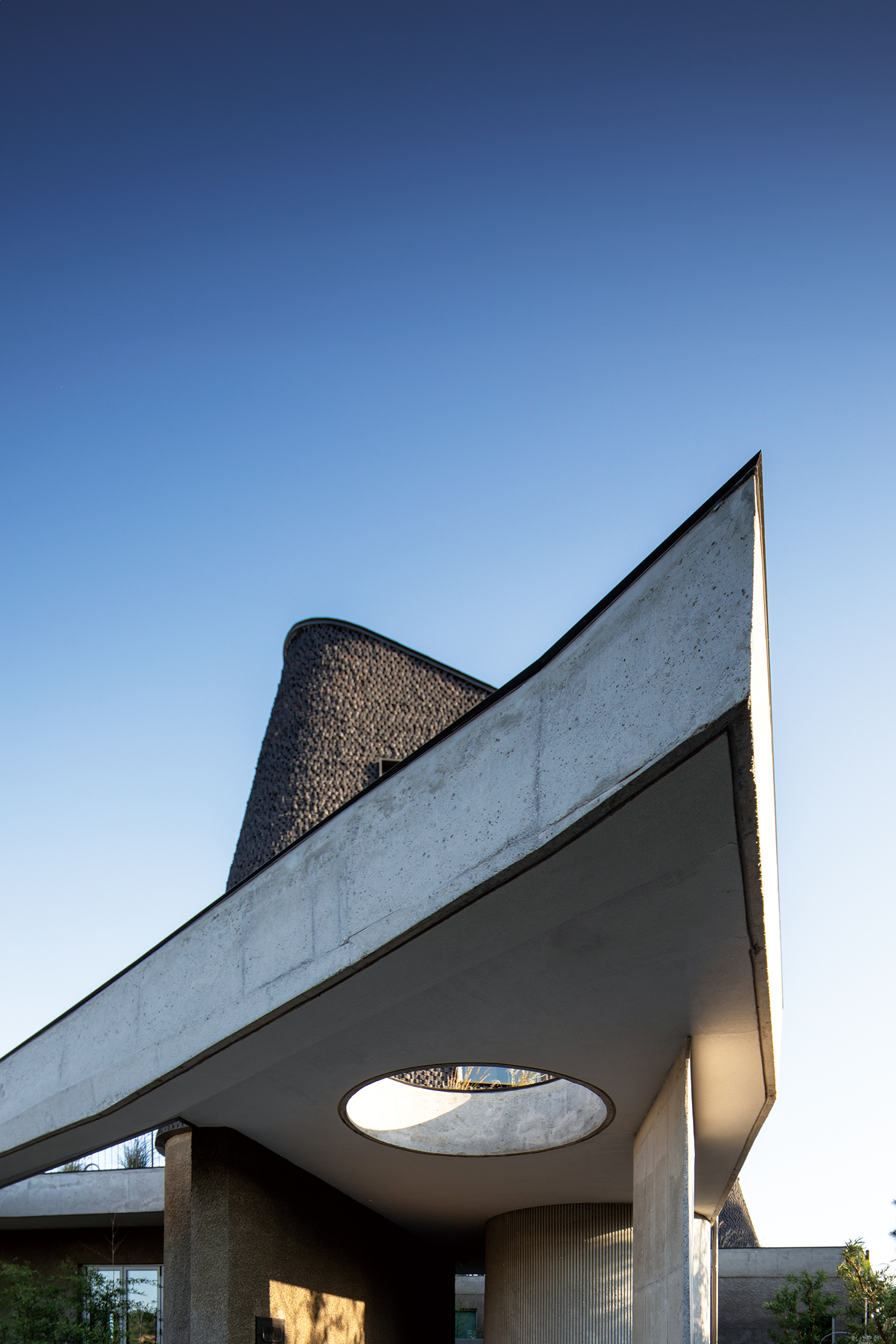
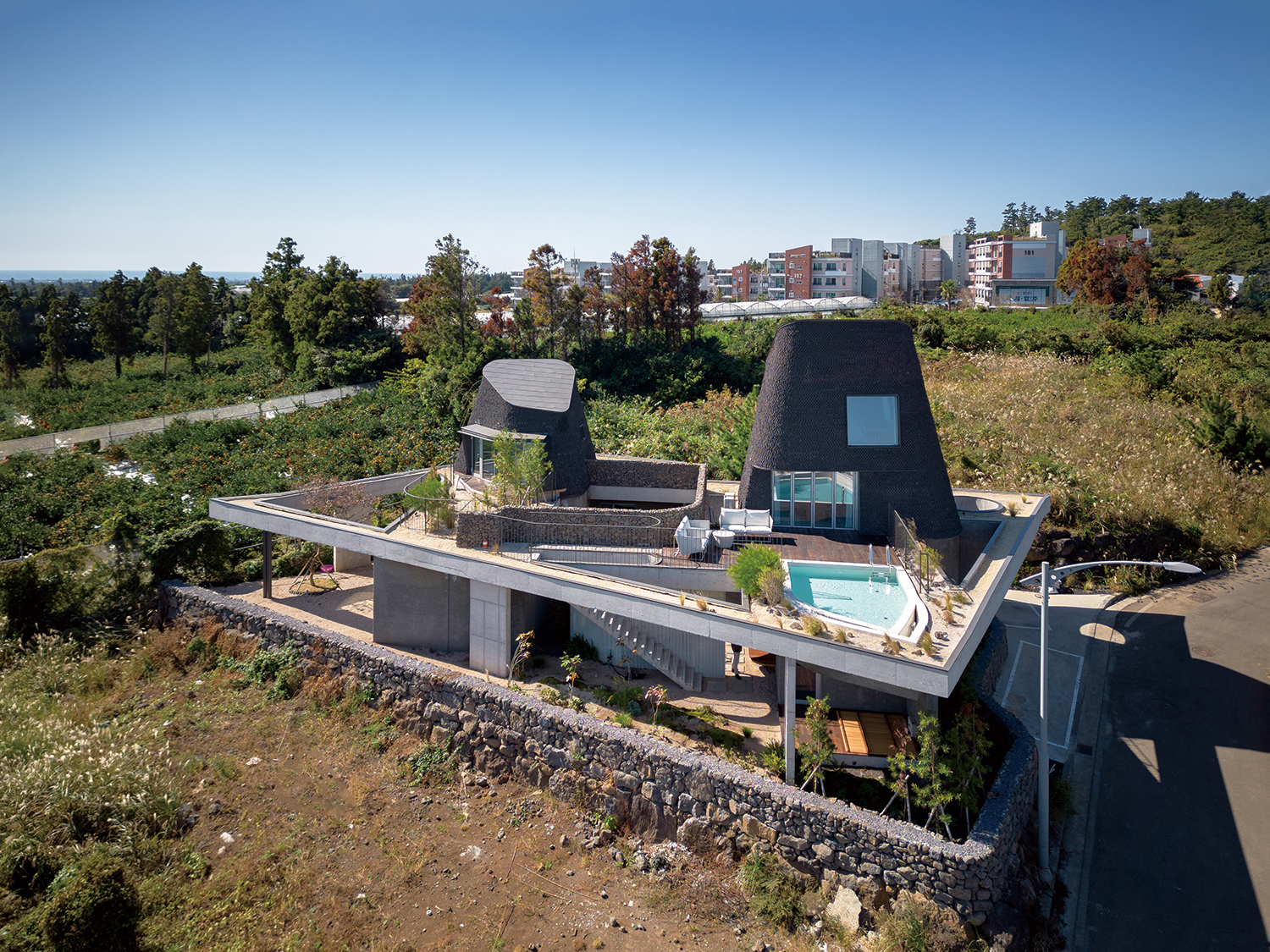
A Context Found in Nature
At the tip of Gotjawal Provincial Park, facing Hallasan Mountain, new man-made grid roads divide the land into which Gotjawal might have extended. They create a site with a panoramic view of Gotjawal and Hallasan Mountain, which is rare in Jeju. Though the forests of Jeju that surrounded this place are now gone, the distant mountain and the park seemed so close as if they could be touched. The client couple, who settled in Jeju after leaving city life behind, asked us to build a stay and a permanent residence. Usually, architects begin by designing with a context in mind, but a more obvious context on which to depend was invisible or hidden here. We wanted to create a new context on its own on a site that had been cut by humans. Standing on the site and looking down at the panoramic views of Jeju’s natural landscape, we imagined a place in which concrete masses extrude like an oreum above the horizontal spread of the land. With different axes for viewing nature set within each programme, the building forms individual spaces with independent views.
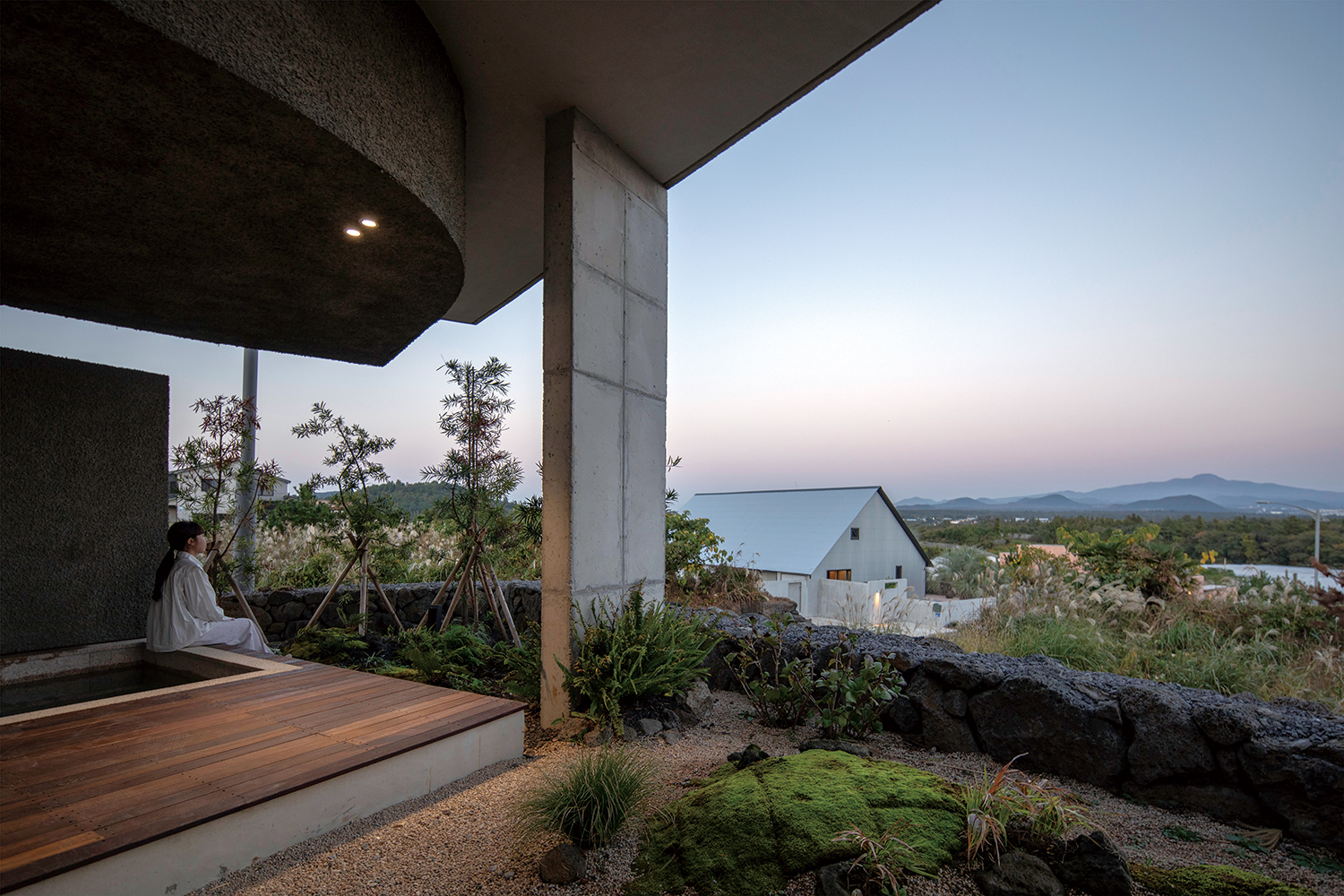
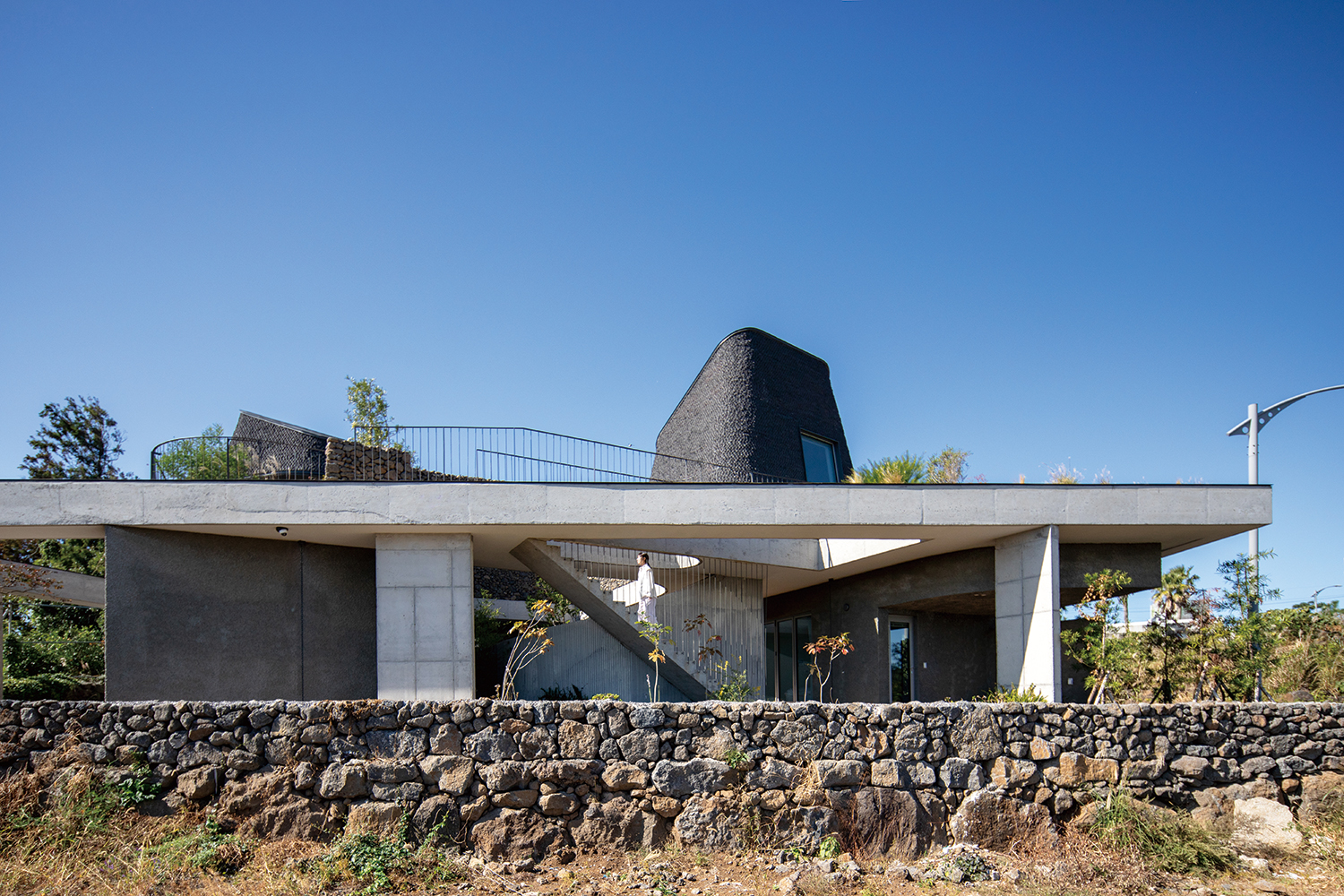
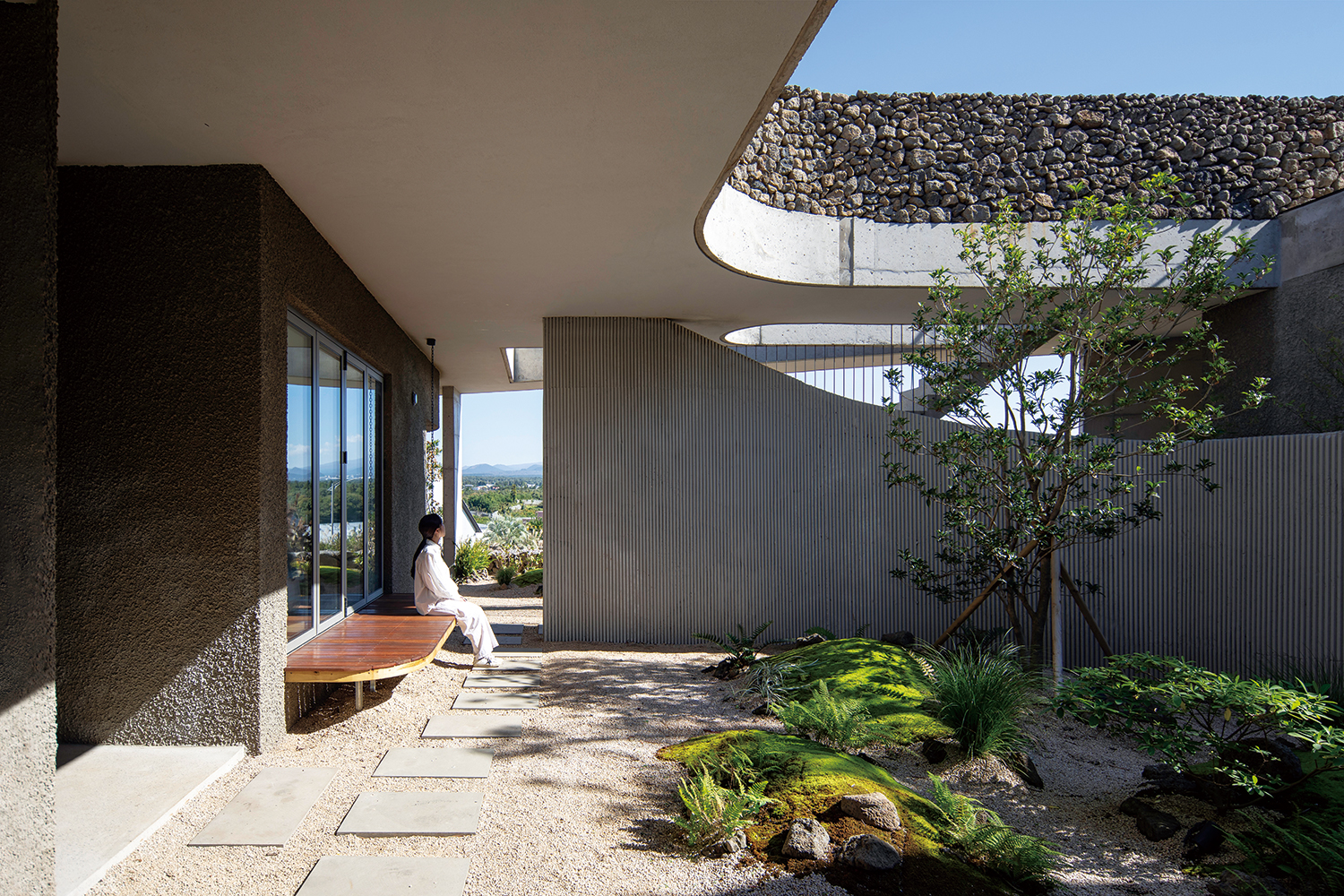
The first floor was arranged along the axis of Hallasan Mountain and Sanbangsan Mountain to escape the influence of adjacent sites and surrounding buildings. An exposed concrete wall flexibly crosses the centre of the building and forms a central courtyard, which serves as a supporting structure for the second floor and perfectly separates the stay from a residence on the narrow site. The single plane floating above the site is landscaped so that it can visually be a continuation of the natural element of the Gotjawal. Spaces on the second floor shaped like an oreum have a rooftop garden that resembles Gotjawal, and are separated by landscaping and Jeju stone walls. Chungsu Got is grey, but the light adds layers of colour saturation to the building shining through the voids at different times of day. Concrete surfaces and spaces between them reveal different expressions depending on the light, and become a natural backdrop for the bluish landscaping. And they always lead the eye to the impressive Gotjawal, oreum, Sanbangsan Mountain, and Hallasan Mountain.
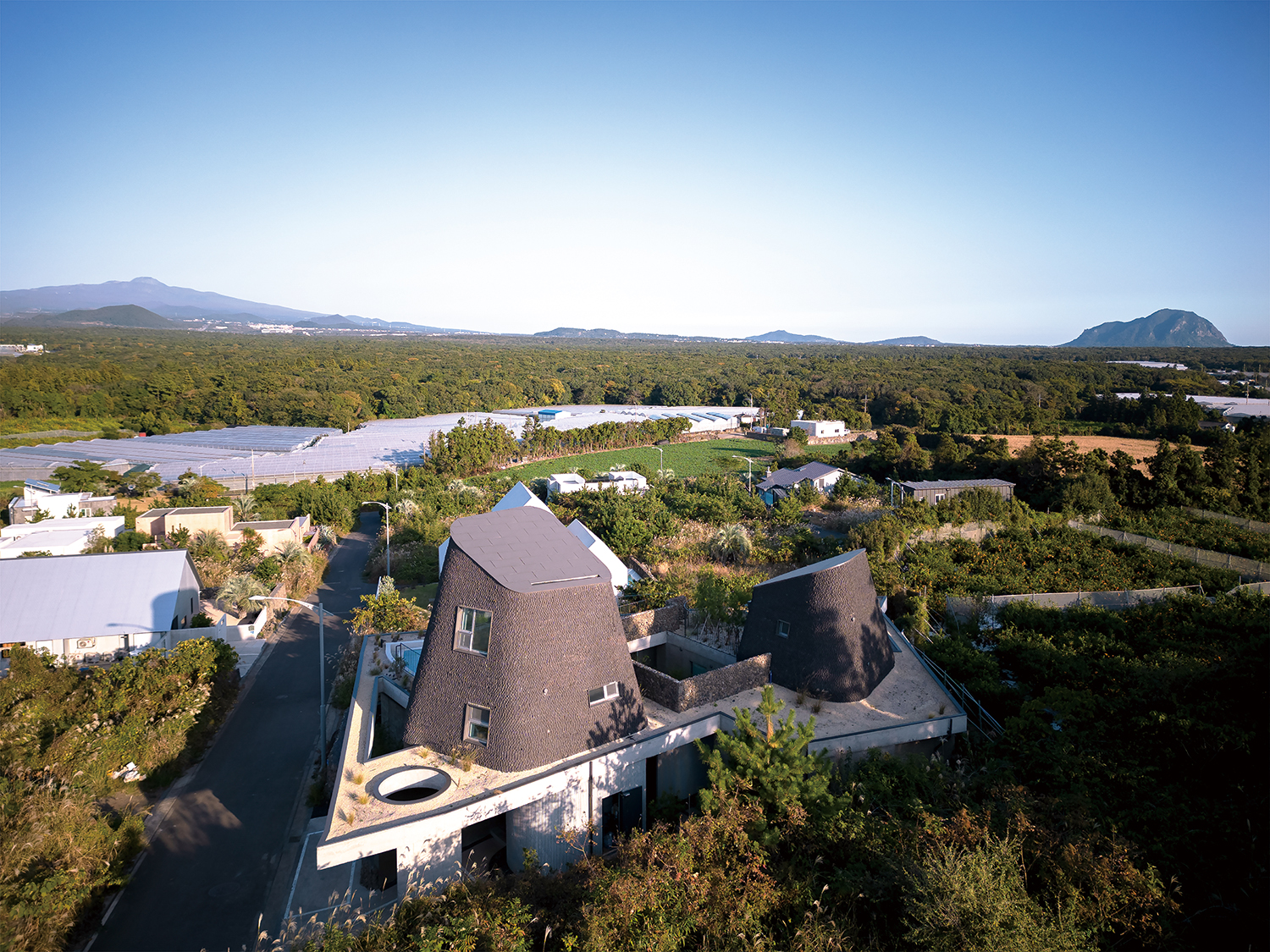
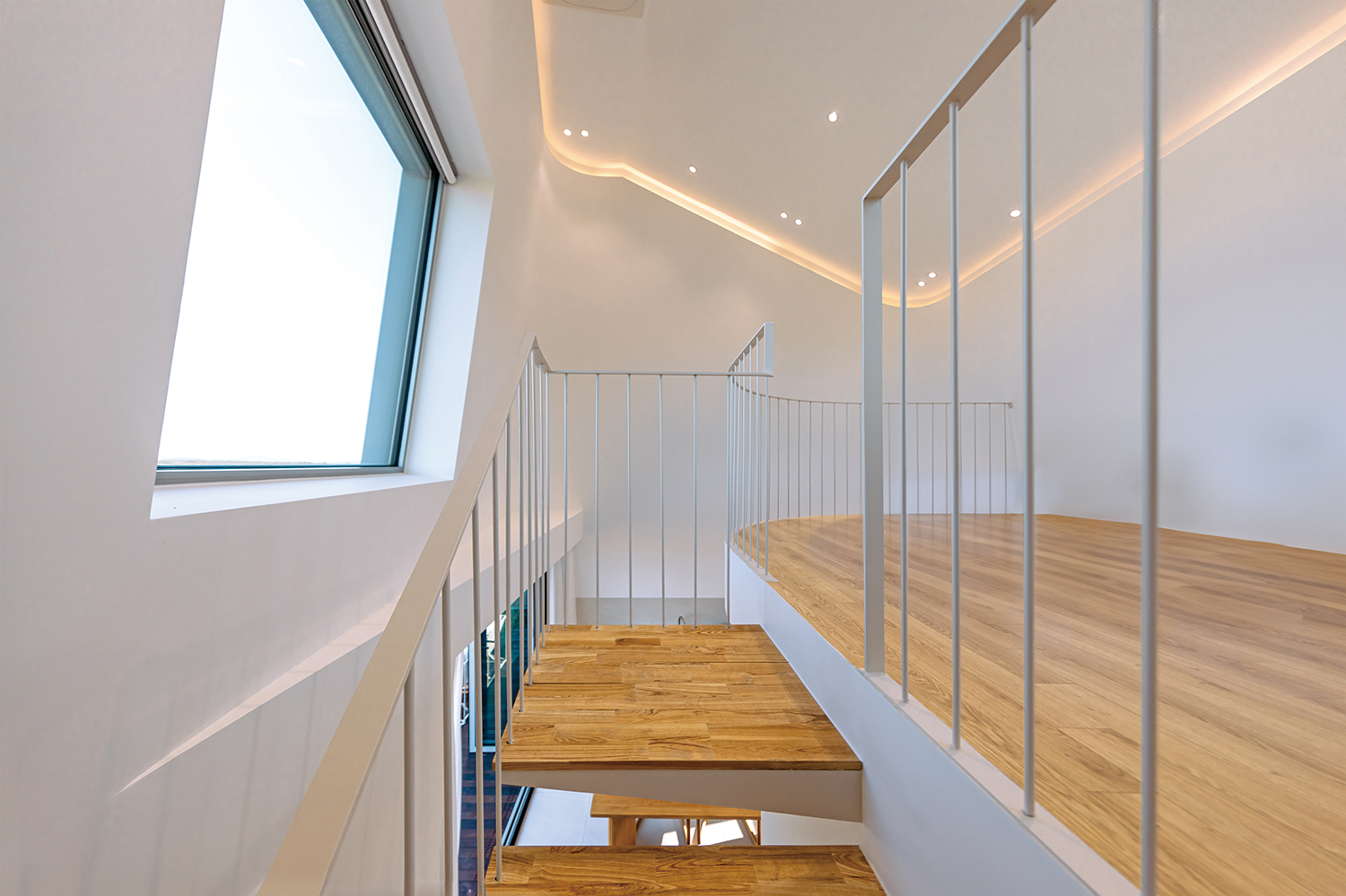
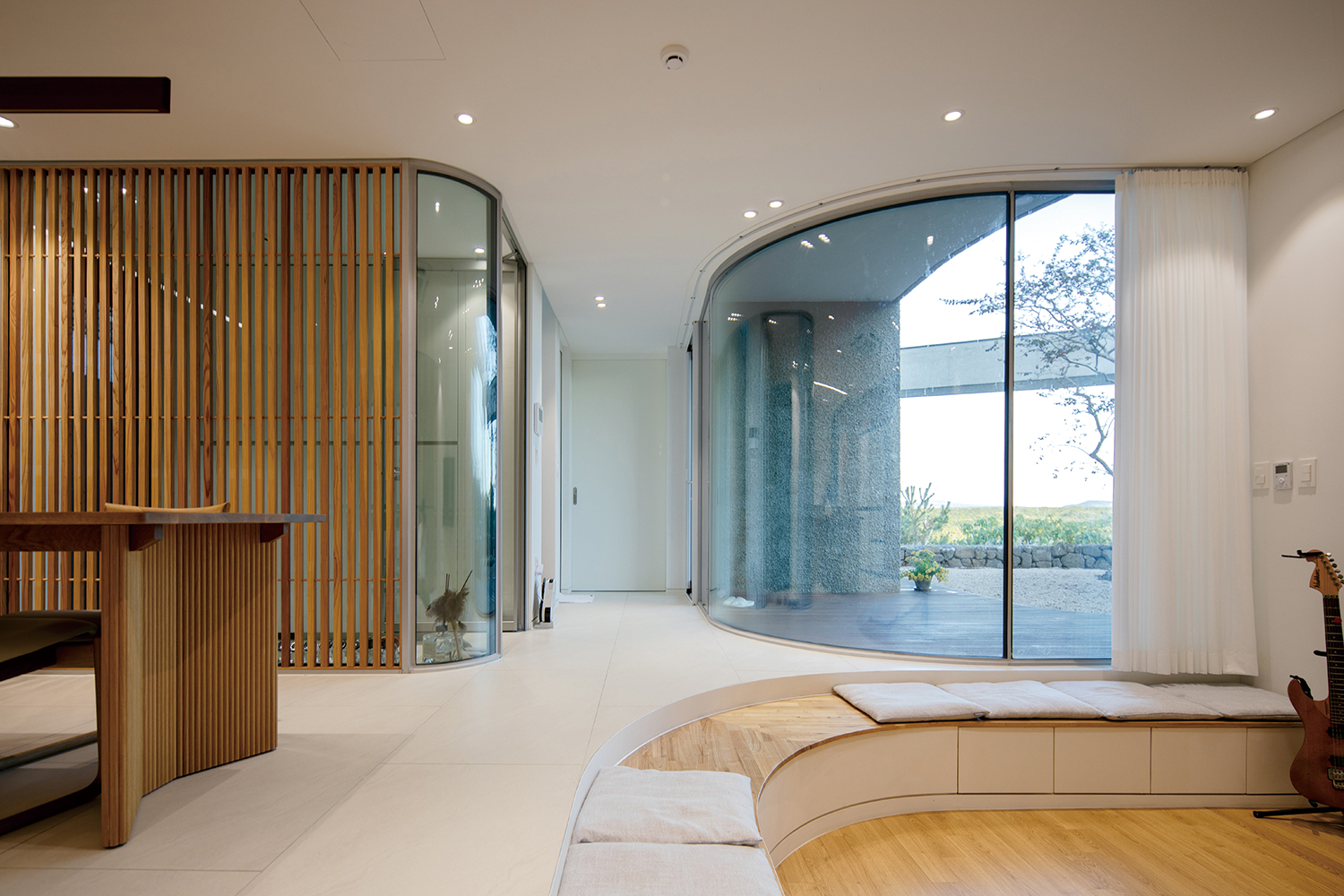

Formative architects (Koh Youngsung, Lee Sungbeom)
Baek Hyemin
Cheongsu-ri, Hankyung-myeon, Jeju-si, Jeju-do, Ko
single house (rural bed and breakfast facility)
495m²
197.86m²
183.43m²
3F
2
10.8m
39.97%
183.43%
RC
cement technique, reclaimed brick, exposed concret
water paint
Eden Structural Engineering Group
GM EMC
MK Construction and Interior
Aug. 2021 – Apr. 2022
May 2022 – July 2023
Hwamokhae (Kim Sinae)






